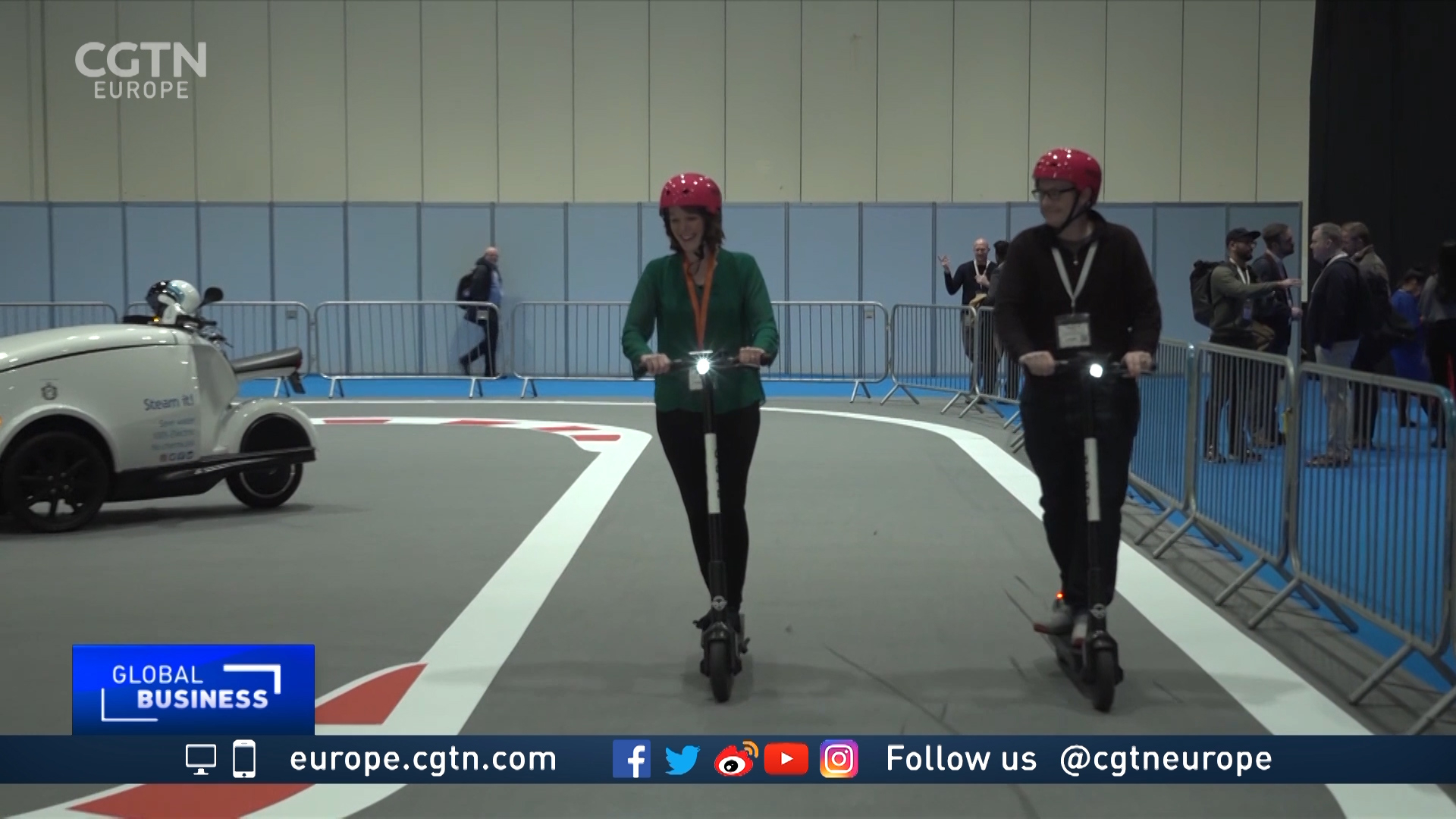02:33

Easy to manoeuvre, petrol free and quite a lot of fun on two wheels, e-scooters are fast becoming a feature of the urban mobility scene in the quest for more sustainable ways to travel.
"Under the right circumstances these vehicles can massively reduce congestion and carbon emissions, certainly. I think this is the best solution, especially for trips from 1-6 km," said Joe Lewin, Founder and CEO of start-up Blue Zoom, which provides a bespoke e-scooter service for commercial and residential properties in Europe and the Middle East.
"We have been talking about traffic and congestion for the last twenty years - how to get people out of cars in city centres. E-scooters are a great option. They are electric, they don't take up space - You can get a lot of e-scooters in one car parking space," said Kristina Nilsson from Swedish e-scooter firm VOI Technologies.
"This is a vehicle for sharing. On average, each e-scooter for hire is used 5 to ten times a day," said Nilsson. VOI launched in August 2018 but now has e-scooters in 40 cities in 10 countries.
It is a nascent, fast growing and competitive market. From highly valued American firms like Bird and Lime which have attracted big investment, to Sweden's VOI Technologies and start-ups like Blue Zoom, e-scooters are having a moment.
"It is a race for territory. There are so many cities and towns out there craving a micro-mobility solution but it has not yet been fulfilled," Joe Lewin said.
Micro-mobility is the catch-all for e-bikes, e-scooters and e-skateboards. Billions have already been invested in the market. Research by consultants McKinsey says the European e-scooter market will be worth $150bn in Europe by 2030, up to $300bn in the U.S. and $50bn in China.

Germany, where e-scooters are quite popular, is to allow individual cities to decide on restrictions over where e-scooters are permitted to park and circulate. Credit: Michael Sohn / AP
Germany, where e-scooters are quite popular, is to allow individual cities to decide on restrictions over where e-scooters are permitted to park and circulate. Credit: Michael Sohn / AP
However, while at MOVE2020, a mobility event in London, the talk was around e-scooters being an entry point into a new, sustainable infrastructure for getting around cities in the future, there are big questions around e-scooters and safety.
"Is an e-scooter classified as a road vehicle or something for pavements? If it is an Electric Vehicle, then there isn't a problem because they can go in cycle lanes. What you categorize them as is a big challenge," said Professor Jim Saker at Loughborough University.
Nilsson at Swedish firm VOI Technologies says new technology always needs new rules that can keep up with the fast pace of change.
"E-scooters are for sharing. That means we can make sure that what is on the roads is updated and is the best, latest technology. And what we do is a traffic test. 18-25 years olds are not taking driving tests because they are putting off owning a car, but we need to educate them on the rules of the road," she said.
Lewin thinks perceptions are changing: "People have become more aware of these vehicles on roads, drivers in particular. And on cycle lanes. Infrastructure is improving so it is a safer environment as time goes on."
Regulation is keeping up. E-Scooter companies operating in San Francisco now need permits. France has blocked people riding on the pavements. In Singapore e-scooters are only allowed on bike paths.
In the UK, riding an e-scooter is illegal on public roads, but there is a limited trial taking place in London. Plus, there will be a regulatory review in a British government consultation on e scooters. Until there is legislation, there is no way to insist on safety standards or reinforce the rules of the road.
Meanwhile, electric scooter companies in Germany might have to put the brakes on plans to operate in cities like Berlin, as some state governments push for a regulatory crackdown. German politicians were due to vote on amendments to the country's Road Traffic Act on Friday which could give individual cities the right to restrict where e-scooters are parked - or ban them from the streets entirely. That's not something Nilsson wants to see.
"I think e-scooters are here to stay in Germany. Certainly in places like Munich. But other cities may opt not to allow them on their streets if they don't have the infrastructure in place to handle them - the right spaces for docking and for charging and bike lanes to ride e-scooters."